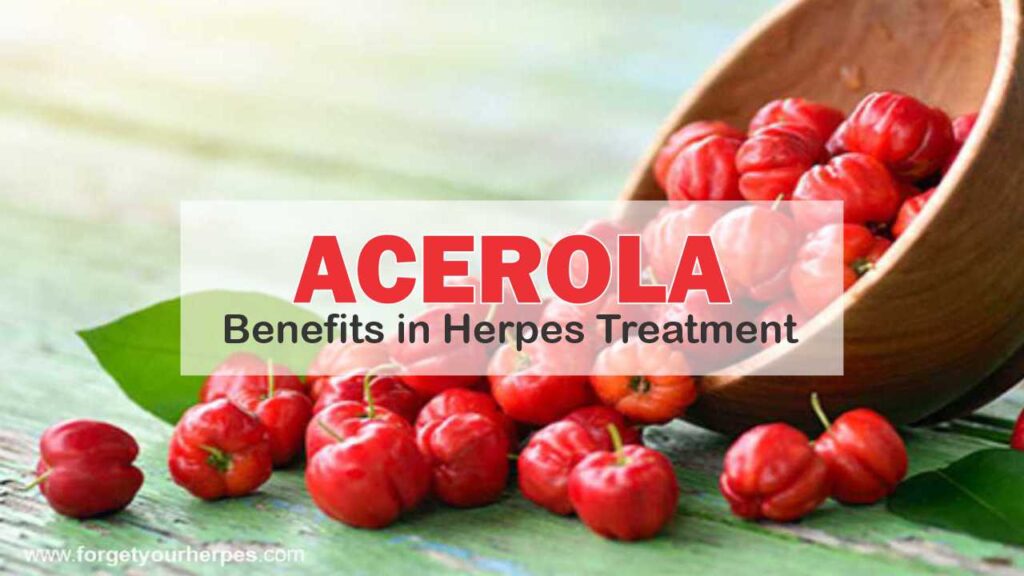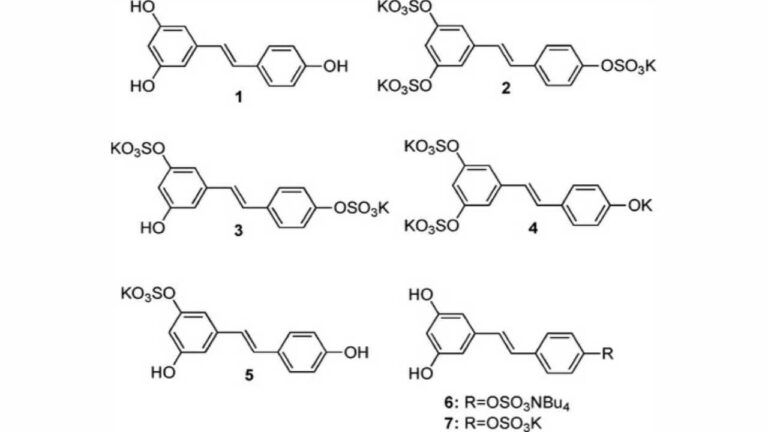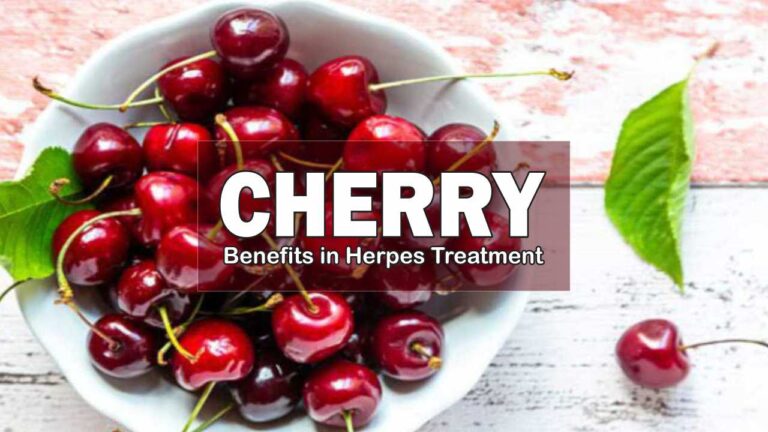Acerola is a small, red fruit native to Central and South America, known for being one of the richest sources of vitamin C in nature. In addition to vitamin C, acerola is rich in antioxidants, B vitamins, vitamin A, calcium, iron, phosphorus, and potassium. Due to these nutrients, acerola has been studied for its potential benefits in treating herpes and overall health.

Research of acerola in the treatment of herpes.
Recent studies have suggested that acerola may be beneficial in the treatment of herpes. A study published in 2015 in the Journal of Applied Microbiology found that acerola extract inhibited the growth of HSV-1 and HSV-2 in human cells in vitro. The researchers noted that acerola extract showed antiviral activity comparable to standard antiviral medications.
Another study published in 2018 in the Journal of Ethnopharmacology evaluated the effect of acerola extract in mice infected with genital herpes virus. The results showed that acerola extract reduced viral load in mice infected with HSV-2 and improved the recovery of affected tissues.
Benefits of Acerola in the Treatment of Herpes
In addition to being rich in vitamin C, acerola contains other substances that may help in the treatment of herpes. These include:
Flavonoids
Plant compounds that possess antioxidant and anti-inflammatory properties. Studies have shown that some flavonoids present in acerola, such as quercetin and rutin, have antiviral action and may help combat the herpes virus.
Ascorbic acid
Also known as vitamin C, it is a powerful antioxidant that helps strengthen the immune system and combat the herpes virus.
Carotenoids
Plant pigments that possess antioxidant properties. Acerola is rich in carotenoids, such as beta-carotene, that help prevent cellular damage caused by the herpes virus.
Ellagic acid
A compound present in various fruits and vegetables that possesses antioxidant and anti-inflammatory properties. Studies have shown that the ellagic acid present in acerola can help inhibit the replication of the herpes virus.
Nutrients in Acerola important for treating herpes
The nutritional content of an acerola may vary slightly depending on the region where it is grown and the weather conditions, but in general, the fruit is extremely rich in essential nutrients for health. A single acerola may contain:
| Nutrient | Amount | Daily Percentage |
|---|---|---|
| Calories | 4 | <1% |
| Carbohydrates | 0.9 g | <1% |
| Protein | 0.1 g | <1% |
| Fat | 0.1 g | <1% |
| Fiber | 0.3 g | 1% |
| Vitamin C | 14.6 mg | 16% |
| Vitamin A | 38.1 IU | 1% |
| Vitamin B1 (Thiamin) | 0.009 mg | 1% |
| Vitamin B2 (Riboflavin) | 0.013 mg | 1% |
| Niacin | 0.176 mg | 1% |
| Iron | 0.08 mg | 1% |
| Calcium | 5.5 mg | <1% |
| Phosphorus | 7.3 mg | <1% |
| Potassium | 33.5 mg | <1% |
How to include Acerola in a daily diet for Herpes Treatment
Acerola can be consumed fresh, in juices, smoothies, desserts, and various recipes. Check out some tips on how to include acerola in your daily diet to support herpes treatment:
Acerola juice
Blend 1 cup of acerolas with 1 cup of water in a blender and strain. Sweeten to taste and serve chilled.
Fruit salad
Cut the acerola into pieces and mix with other fruits of your choice, such as mango, kiwi, and strawberry.
Yogurt with acerola
Add some chopped acerolas to plain yogurt and sweeten to taste.
Acerola jelly
Prepare an acerola jelly according to the package instructions and serve chilled.
Acerola smoothie
Blend 1 cup of acerolas with 1 banana, 1/2 cup of coconut milk, and ice in a blender. Serve immediately.
Natural Supplements
Including a supplement that contains all the nutrients from acerola can be a practical and quick option if you don’t have much time to prepare your food.
Summary
Acerola is a nutrient-rich fruit that can provide several health benefits, including the treatment of herpes. Various studies have shown that acerola can help relieve symptoms of herpes, such as pain, itching, and inflammation, thanks to its antioxidant and anti-inflammatory properties.
Furthermore, acerola is a rich source of vitamin C and other essential nutrients that can help strengthen the immune system and prevent herpes recurrence. The fruit is also versatile and can be consumed in various ways, such as juices, smoothies, fruit salads, and jellies.
If you suffer from herpes, considering the inclusion of acerola in your daily diet can be an excellent way to help alleviate symptoms and promote overall body health.




